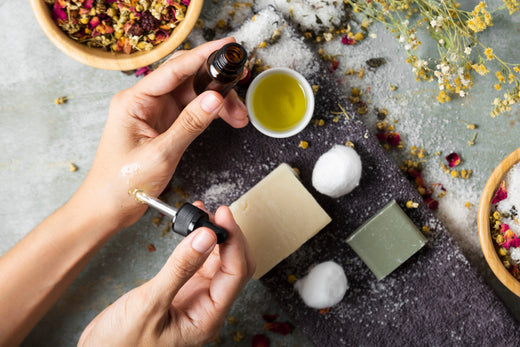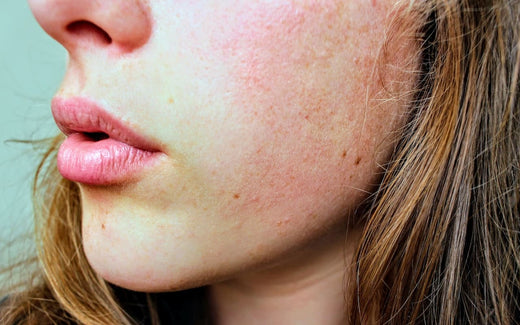
When Aromatherapy Works: Discover the Magic of Essential Oils
Table of contents
You've probably heard about the wonderful benefits of aromatherapy on more than one occasion, right? But have you ever wondered when aromatherapy takes effect? The answer to this question is fascinating and depends on several factors that can vary from person to person. Let me go a little deeper into the subject.
Aromatherapy is an ancient practice that uses natural essential oils, extracted from plants, to improve physical, emotional and mental health. These essential oils are highly concentrated and contain aromatic compounds that can influence our feelings, moods and overall well-being. However, the timing of aromatherapy's effect can vary considerably.
One of the most important factors that influence how quickly essential oils work in your body is how you use them. There are several ways to apply aromatherapy, including inhalation, topical application, and ingestion, although the latter should be done under the supervision of a health care professional, as some essential oils can be toxic if ingested incorrectly.
The Rapid Action of Essential Oils
The rapid action of essential oils is an intriguing and fundamental phenomenon that contributes to the effectiveness of aromatherapy . To better understand this speed of action, it is essential to explore the mechanisms and factors involved in the process and thus be able to answer your question, when does aromatherapy take effect?
First of all, it is important to understand that essential oils are fat-soluble substances, meaning they have a natural affinity for fats and lipids. This characteristic is key to their rapid absorption and action in our body. Essential oils are composed of a variety of chemical compounds, including terpenes, phenols and alcohols, which possess unique therapeutic properties.
The fascinating thing about essential oils is that, due to their molecular structure, they can easily pass through the lipid barrier surrounding our cells. This protective barrier, known as the cell membrane, is composed primarily of lipids, allowing the compounds in essential oils to enter relatively easily. This feature is essential to understanding why aromatherapy can have such a rapid effect on the body.
When using aromatherapy, whether through inhalation, topical application, or even controlled and supervised ingestion in some cases, essential oils begin to exert their influence almost immediately. Here's a closer look at when aromatherapy takes effect depending on different application methods:
- Inhalation : Inhaling essential oils, often through a diffuser, allows the aromatic compounds to enter the respiratory system directly. From there, they quickly diffuse through the lungs into the bloodstream, making it easier for them to be distributed throughout the body and for aromatherapy to take effect. This rapid action on the respiratory system may explain why aromatherapy is effective at relieving symptoms like nasal congestion and stress within minutes.
- Topical Application : When essential oils are applied to the skin, absorption is also relatively fast. This is because the fat-soluble compounds can penetrate the epidermis and reach the deeper layers of the skin, where they can influence underlying tissues and muscles. The speed of absorption and when aromatherapy takes effect depends on factors such as the concentration of the oil, the health of the skin, and the area of application.
- Ingestion (with caution) : Ingestion of essential oils is a more controversial method and should be done under the supervision of a health care professional. When ingested, the compounds enter the digestive system where they can be absorbed and distributed throughout the bloodstream. However, it is crucial to note that not all essential oils are safe for ingestion and when ingesting, strict dilution and safety guidelines must be followed.
In addition to the method of use, other individual factors can influence when aromatherapy takes effect. These include olfactory sensitivity, current emotional and physical state, and personal response to specific scents.
In short, the speed with which essential oils take effect in the human body is an amazing and multifaceted process. Thanks to their fat-soluble structure and the various forms of application, the therapeutic benefits of aromatherapy can be experienced almost immediately, providing relief and well-being within minutes in many cases. However, now that you know when aromatherapy takes effect, you also have to keep in mind that it is essential to use essential oils with caution and, when necessary , seek the guidance of an aromatherapy therapist or health professional to ensure safe and effective use.

The Duration of the Effects of Aromatherapy
So far, we’ve explored when aromatherapy takes effect, but it’s equally relevant to understand how long its benefits last once you’ve experienced its initial impact.
Essential oils, once they have entered your body, continue to work for a considerable period of time . After inhalation, topical application or ingestion of an essential oil, it spreads through your bloodstream, reaching every corner of your body within a few minutes. Within an hour, every cell and organ in your body benefits from its therapeutic properties.
However, the journey of an essential oil in your body doesn't end here. After about an hour, each drop of essential oil is metabolized by your liver and kidneys, being eliminated through sweat, urine, and feces. This means that although the concentration of essential oil in your body will gradually decrease, you will continue to enjoy its beneficial effects over time.
Much like when aromatherapy takes effect, the exact duration of these can vary depending on the type of essential oil and the amount used, but in general, you can expect to experience its benefits for several hours after application or ingestion.
In short, aromatherapy not only acts quickly, but also prolongs its therapeutic effects, making it an effective and long-lasting option to improve your physical and emotional well-being.
How to Diffuse Essential Oils and Get the Most Out of Them
And finally, now that you know how aromatherapy works, I want to share with you some super cool ways to make the most of those aromas and therapeutic properties that we love so much. So get ready to turn your space into an oasis of well-being.
- Essential Oil Diffusers – These are the most effective way to diffuse essential oils! Diffusers disperse those wonderful fragrances throughout your home. You can find ultrasonic diffusers that create a fine mist or heat diffusers that work quietly. The best part? You can personalize your ambiance by choosing essential oils that suit your mood as well as incense that can be key to transforming your spaces.
- Direct Inhalation: When you need a quick “Ahhh!”, simply uncap the bottle of your favorite essential oil, hold it to your nose, and inhale deeply! It’s a quick and effective way to get instant relief from stress or congestion. It works like magic!
- Skin Diffusion: If you want the scent to stay with you throughout the day, mix a few drops of essential oil with a carrier oil and apply it to your skin. Not only will you smell great, but you'll also enjoy the benefits for your skin.
- Aromatic Shower: Why not turn your shower into a spa? Place a few drops of essential oil on a damp sponge or cloth and hang it near the shower. The steam from the warm water will release the aromas, creating a relaxing or revitalizing shower experience.
Uses and benefits of aromatherapy
Essential oils are often used as a complement to conventional treatments due to their outstanding beneficial properties, which include anti-inflammatory, anti-infectious (with antibacterial and antiviral properties) and fungicidal effects. They are used in various situations, such as:
- Dermatological infections : This includes conditions such as eczema, psoriasis, acne and scarring processes.
- Immune system imbalances : They are mainly used in infections and diseases related to the respiratory tract.
- Nervous system disorders : These include problems such as depression, anxiety, emotional imbalances and tachycardia.
In addition to these benefits, aromatherapy offers a wide range of additional advantages, including:
- Pain relief : Thanks to its analgesic properties.
- Antihistamine function and reinforcement of immune defenses .
- Stress reduction , which contributes to better emotional well-being.
- Helps in the fight against depression, anxiety and insomnia .
- Powerful stimulant and aphrodisiac .
- Support in the prevention of cellular aging , thanks to the antioxidant properties of plants.
It is important to note that many medical professionals recommend aromatherapy as a complement to traditional medical treatments. In addition, research has been conducted demonstrating the benefits of this therapy in cancer patients (although it should never be considered a substitute for conventional medical care).
This is because aromatherapy can help reduce stress and depression levels, which are common in cancer patients, thus improving their psychological well-being and quality of life. Furthermore, aromatherapy can positively influence the immune system, which plays a crucial role in the recovery of patients.
There are numerous essential oils, each derived from a unique plant in nature. Therefore, we have put together a list showing some of the most common ailments and how certain essential oils can help in alleviating them:
- Anemia : Dandelion, rosemary, lemon , thyme and sage.
- Anxiety and depression : Bergamot , jasmine , basil , valerian, lavender , vanilla , cedar and rose .
- Heartburn : Lavender , lemon balm , rosemary and chamomile.
- Asthma and bronchitis : Eucalyptus , rosemary , pine , lavender and thyme.
- Bruises and scars : Tea tree , rosehip , calendula , geranium, cedar, sage and jasmine.
- Acne : Sage, chamomile, calendula and violet.
I hope you find these tips helpful in making the most of the benefits of aromatherapy, dear friend! Always remember to use essential oils with care, and in case of serious medical conditions, consult a health professional for specific guidance.



Leave a comment
This site is protected by hCaptcha and the hCaptcha Privacy Policy and Terms of Service apply.